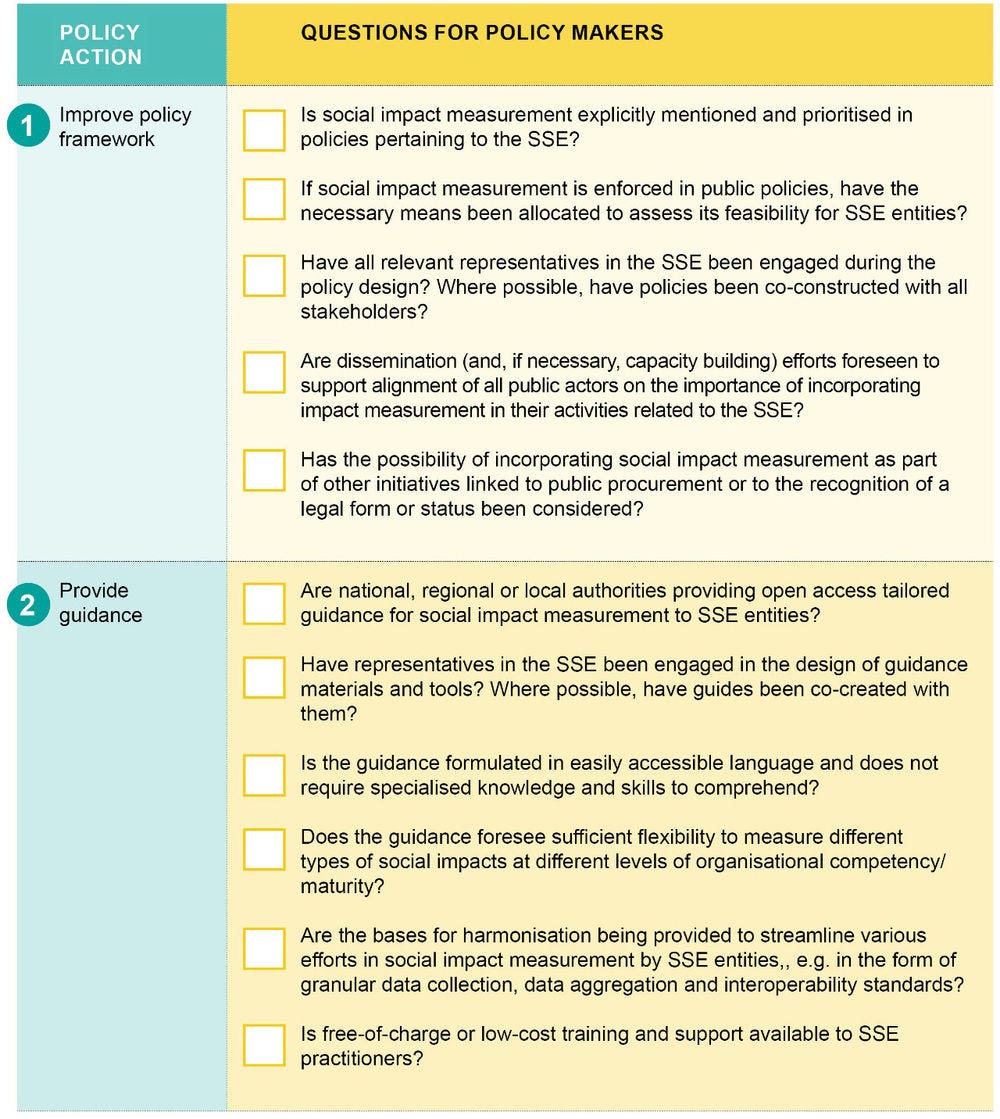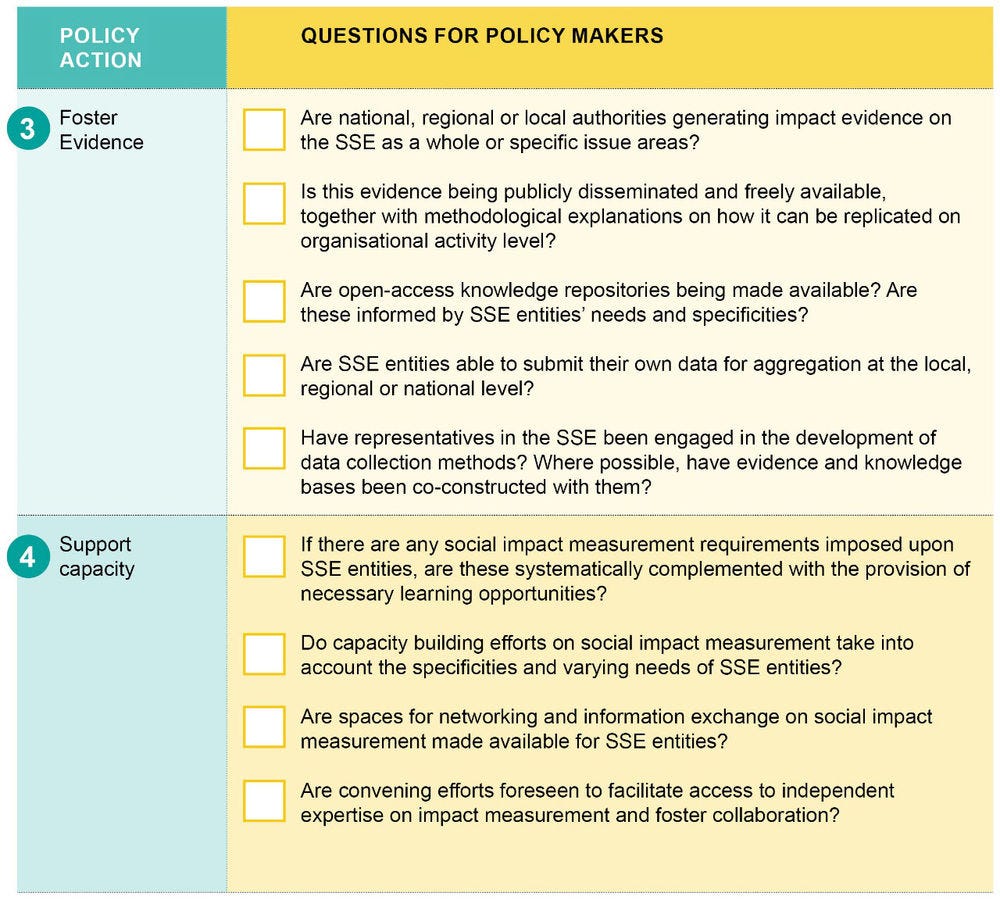Public authorities need to understand the pros and cons of different approaches they may take. While public support is directly needed to advance social impact measurement, it might trigger unintended consequences by increasing reporting burden, discouraging innovative practices, disadvantaging emerging or small organisations, etc. Whilst the promotion of simple, harmonised indicators could facilitate more widespread adoption, it may fail to capture more complex phenomena. Policy makers bear the responsibility to promote a level playing field within the social and solidarity economy and beyond.
This checklist provides a succinct list of the steps to take when putting in place possible policy actions to take in effectively supporting social impact measurement for the social and solidarity economy.


